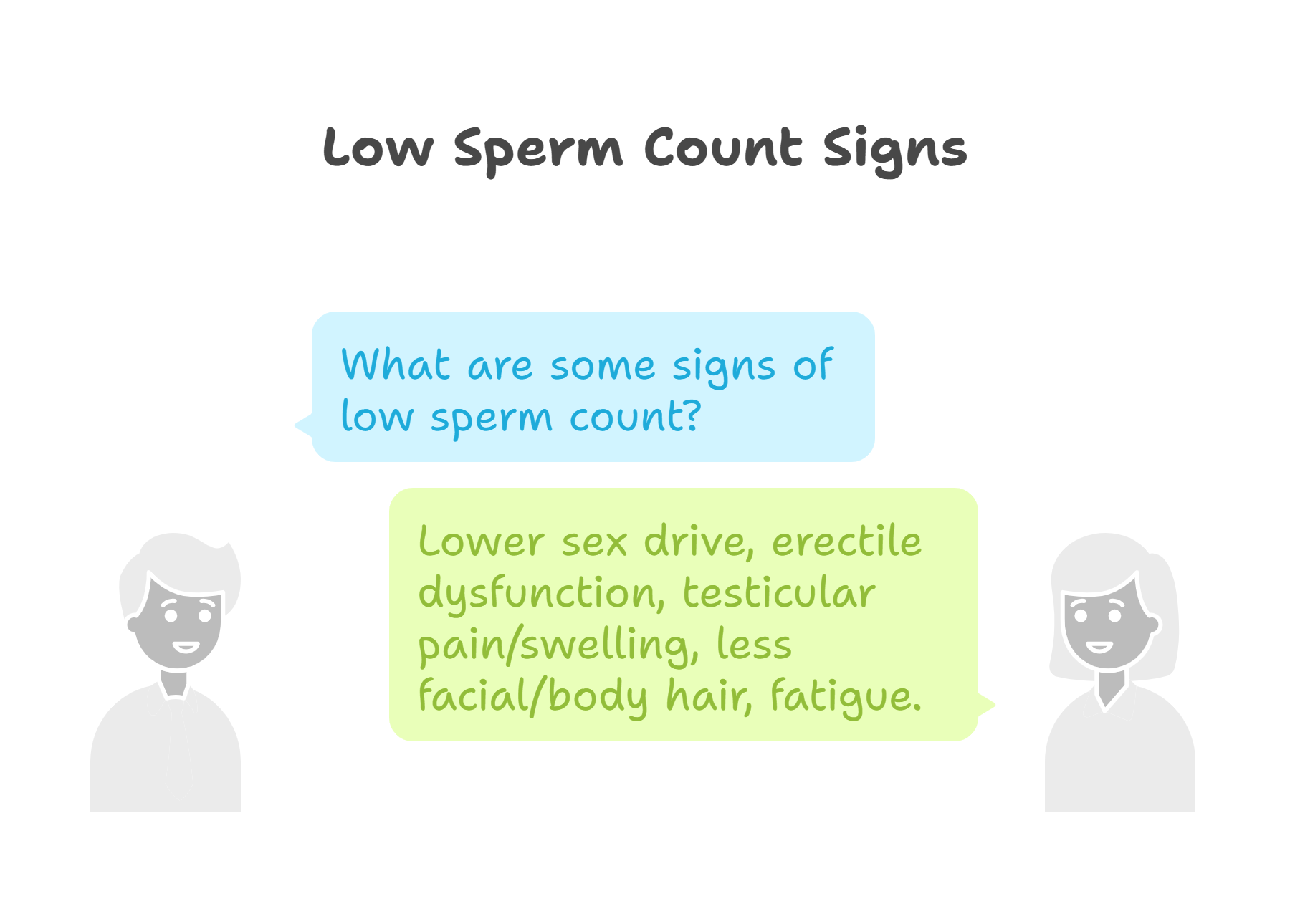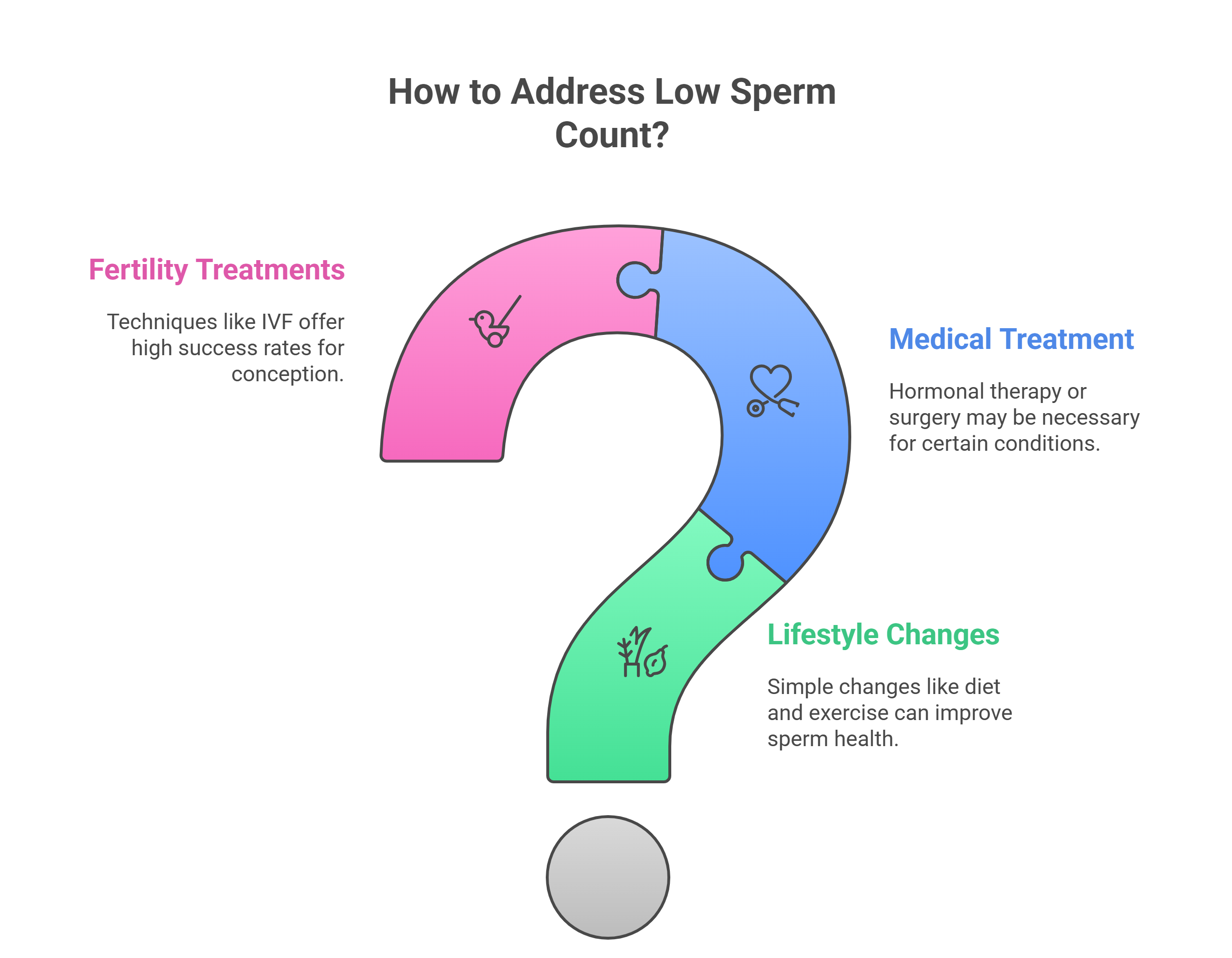
If you are trying to conceive for a long time but are not successful, you need to check for factors related to male infertility as well. One of the most common factors for male infertility is low sperm count. Even though it can sound worrying, low sperm count is quite common and often treatable. What you need to focus on is to look for low sperm count signs and get the right medical help without any delay.
What Does a Low Sperm Count Mean?
In simple words, a low sperm count means that a man’s semen has fewer sperm than what is considered as normal. A healthy count is about 15 million sperm per milliliter or higher. Anything lower can make it harder to conceive naturally.
However, it’s not just the number of sperms that matter when you are trying to get pregnant, the movement and shape of the sperm are also important. Even if you have a low sperm count, but they are healthy and active, pregnancy can still happen. That is why doctors usually start with a semen analysis. It is a straightforward test that gives a clear picture of sperm count, quality, and movement.
Common Low Sperm Count Signs
Even if you have a low sperm count, you might feel completely fine till you notice that you are having trouble conceiving. Still, your body often gives signals that something might be wrong.
Here are some signs of low sperm count to watch out for:
- Lower interest in sex than usual
- Trouble getting or maintaining an erection
- Pain, swelling, or a feeling of heaviness in the testicles
- Less facial or body hair than before
- Feeling unusually tired or low in energy

None of these symptoms confirm a low sperm count on their own, but they are reasons enough to get checked. If you and your partner have been trying to conceive for over a year (or six months if she is over 35), it is best to see a fertility specialist as early as you can.
Why Does It Happen?
Low sperm count can have many different causes, and sometimes it’s a mix of several factors.
There can be some medical reasons like varicocele (enlarged veins in the scrotum), hormonal imbalances, or infections that affect sperm production. Some men are born with genetic factors that influence fertility, while others experience issues like ejaculatory blockages.
Lifestyle habits also play a big role. Smoking, alcohol, poor diet, stress, and lack of exercise can all lower sperm quality. Long work hours, irregular sleep, or constantly being exposed to stress can gradually affect hormone levels.
Environmental exposure matters too. Sitting for long hours with a laptop on the lap, working in high-temperature environments, or coming into contact with chemicals and toxins can reduce sperm count.
Apart from the above, certain medications or health conditions like diabetes and thyroid disorders can also interfere with sperm production.
Getting the Right Diagnosis
If any of the low sperm count signs sound familiar, the next step is to get tested. A semen analysis gives the most accurate starting point. The test measures sperm count, movement, and shape.
Depending on the findings, your doctor might suggest additional tests such as hormone testing, a scrotal ultrasound, or even genetic screening. These help find the exact cause so that treatment can be tailored to you. It is best to consult a fertility specialist or an andrologist, as they focus specifically on male reproductive health.
Treatment for Low Sperm Count
Simple lifestyle changes can go a long way. Eating a balanced diet with plenty of antioxidants, staying active, maintaining a healthy weight, quitting smoking and alcohol, and finding healthy ways to manage stress can all help boost sperm health. Even getting enough sleep makes a difference.
When medical treatment is needed, doctors may suggest hormonal therapy, antibiotics (if an infection is present), or surgery for conditions like varicocele. In other cases, specific medications can help regulate hormones or improve sperm production.
If natural conception still seems difficult, fertility treatments offer excellent success rates. Techniques like IUI (Intrauterine Insemination), IVF (In Vitro Fertilization), and ICSI (Intracytoplasmic Sperm Injection) have helped thousands of couples conceive, even when sperm counts are very low.

Low sperm count is not something to be ashamed of. It is a medical condition, and like most health issues, it can be treated with the right care. Recognizing low sperm count signs early and speaking to a specialist can help you get pregnant.
If you have been trying to conceive and suspect low sperm count could be a reason, then book a consultation and explore advanced fertility treatments, personalized plans, and supportive care.



